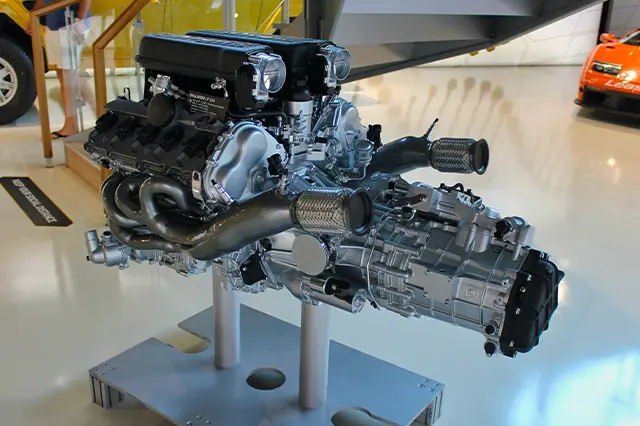
Is it worth getting a new engine?
When it comes to car engines, most of us would say yes. We want them to last as long as possible and feel like they’re worth the investment. But what do the numbers say? In this blog post, we will explore how car engines are actually made and what factors affect their lifespan. From materials used to design and construction, read on to learn everything you need to know about engine replacement and whether or not it’s really worth it.
What are the benefits of getting a new engine?
If you’re thinking about getting a new engine for your car, there are a lot of benefits to consider. Here are four reasons why upgrading could be worth your time:
1. Increased Fuel Efficiency and Performance
One of the most obvious benefits of getting a new engine is that it will improve your car’s fuel efficiency and performance. Older engines tend to use more fuel, which can be a big expense if you’re driving a large vehicle like a SUV or truck. Newer engines also tend to be more powerful and efficient, so they’ll give you better acceleration, speed, and overall performance.
2. Improved Safety and Reliability
Another reason to upgrade your engine is that older models tend to be less reliable than newer ones. Older engines are often built with cheaper parts that may not hold up as well over time. This can lead to problems such as premature wear and tear on your car’s components, or even breakage. Upgrading to a newer engine will likely increase its reliability and lifespan, which is something you’ll want in any vehicle that relies on its engine for safety.”
3. Increased Fuel Economy and Reduced Emissions
Finally, upgrading to a newer engine can also lead to increased fuel economy and reduced emissions. Older engines tend to produce more pollution than newer ones, which can have a significant impact on the environment. Upgrading to a newer engine will help you save on gas costs, and may even result in decreased emissions levels overall.
4. Improved Design and Functionality
Last but not least, upgrading your engine also often results in improved design and functionality. Older engines are often built using outdated technology that may not be as functional or efficient as newer models. Updating your engine can give you access to new features and capabilities that were unavailable before.
There are a lot of benefits to upgrading your car’s engine, and the decision to do so should be weighed carefully. If you’re considering whether or not to upgrade, take into account the benefits listed above and decide which is the best fit for your needs.
When is it time to replace my engine?
Replacing an engine in a car or truck is a common repair, and it’s something that you should consider when it starts to show signs of wear. Here are some things to keep in mind when deciding if it’s time to replace your engine:
1. How much mileage is on the vehicle? If the vehicle has a lot of miles on it, it’s likely that the engine has been pushed to its limits. This means that the engine may not be able to perform as well as it used to, and may even start experiencing problems later on in its life. In general, cars and trucks with around 150,000 miles or less on them are typically good candidates for a new engine.
2. What kind of driving does the vehicle do? Engine performance can vary depending on what kind of driving the vehicle is subject to. For example, engines designed for freeway driving will generally perform better than those used for city driving. Make sure you have the specifications for the type of driving your vehicle does before making a decision about whether or not to get a new engine.
3. Are there any warning signs? If you notice any warning signs such as decreasing fuel efficiency, rough idle, or reduced power, it’s time to take your car or truck in for inspection and see if an engine replacement is necessary.
4. How much money are you willing to spend? There is no set price tag associated with replacing an engine in a car or truck. Instead, the cost will depend on the make and model of the vehicle, as well as the type of engine that needs to be replaced. In general, though, expect to pay between $2,000 and $6,000 for a new engine in a car or truck.
5. How reliable is the vehicle currently? If you’re not sure whether or not you’d be comfortable driving a car or truck with a new engine, it might be a good idea to test the reliability of your current engine before making a decision. You can do this by taking it in for a tune-up or by having an independent mechanic inspect it.
Factors to consider when buying a new engine
When buying a new engine, there are a few factors to consider. The most important factors are the engine’s power and fuel economy. Other factors that may be important include the engine’s warranty, how long it will last, and whether or not it is compatible with your vehicle. Here are some tips for choosing an engine:
1. Make sure you have a clear goal in mind. You don’t want to buy an engine just because it is powerful or has a high fuel economy rating; you need to decide what you need the engine for and which features are most important to you.
2. Consider the power ratings of the engines available. A lower-power engine may be better if your vehicle doesn’t require a lot of power, such as when driving on city streets or in mostly stopped traffic. Conversely, a high-power engine may be better if you plan to drive in off-road conditions or take frequent trips above 55 mph (88 km/h).
3. Compare fuel economy ratings and find an engine that matches your needs while still maximizing fuel efficiency. Many engines have multiple fuel economy ratings, so make sure to compare apples-to-apples by looking at total combined miles per gallon (MPG) rather than just highway MPG ratings. For example, an engine with a highway MPG rating of 30 but a total combined MPG rating of 40 would be better than an engine with a highway MPG rating of 25 but a total combined MPG rating of only 30.
4. Consider the engine’s warranty. Many engines come with a warranty that covers both mechanical and electrical failures.
5. Compare the length of the engine’s warranty. Some engines have shorter warranties than others, so be sure to factor this into your decision.
6. Check if the engine is compatible with your vehicle. Many engines are not compatible with some vehicles, so be sure to research your specific make and model before making any final decisions.
How much does it cost to get a new engine?
It can cost anywhere from $2,000 to $6,000 to get a new engine installed in your car. The amount you pay depends on the make and model of the vehicle, the age of the engine, and other factors. Many manufacturers offer incentives for replacing an older engine with a newer model.
It’s important to remember that not all new engines are created equal. Make sure you compare prices and features of different engines before making a decision.
Conclusion
It is hard to know for certain whether or not it is worth getting a new engine for your car, as there are so many factors that need to be considered. Ultimately, the decision you make will depend on what type of engine you need and how much it would cost to replace it. If you are in the market for a new car, be sure to do your research and consult with an automotive expert before making any decisions.
